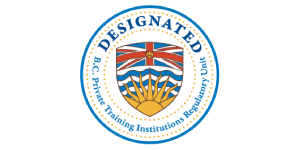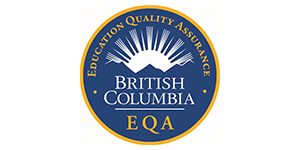CCTB will not be accepting new student intakes during the 2026 calendar year. This planned pause allows us to focus on supporting currently enrolled students and to undertake institutional planning initiatives.
Program information remains available on our website for reference. Updates regarding future intakes will be shared as they become available.
For any specific inquiries, please contact learn@canctb.ca.
The Hospitality and Tourism Administration with Co-op program, accredited by CCTB, stands as a comprehensive pathway for students to acquire the essential competencies needed for success within the vibrant hospitality sector. This program is meticulously crafted to provide students with a robust foundation of skills, knowledge and attitudes crucial for effectively managing responsibilities in various facets of the industry. With a keen focus on core departments such as front office operations, food and beverage management, hospitality marketing and finance, students are equipped with a well-rounded understanding of the diverse operational aspects within the realm of hospitality management. Through a combination of theoretical learning and practical application, graduates emerge prepared to navigate and thrive in the dynamic landscape of the hospitality industry.
Enrolling in the Hospitality and Tourism Administration with Co-op program offers numerous benefits, including the integration of on-the-job training as a pivotal component. Recognizing that classroom studies alone are insufficient for comprehensive skill development, we prioritize supervised practical work experience aligned with students' academic and career objectives. This unique approach ensures that students gain invaluable real-world experience, enhancing their readiness for success in the hospitality and tourism industry while simultaneously advancing their academic and career goals.
The co-op work experience component constitutes half of the program's entirety, totaling 480 hours. This segment offers you the chance to put into practice the skills you've recently acquired in a real-world setting within the industry, all while benefiting from a guaranteed paid work opportunity.
DESIGNATED B.C. PRIVATE TRAINING INSTITUTIONS REGULATORY UNIT & Shield Design mark is a certification mark owned by the Government of British Columbia and used under licence.


At CCTB, our mission is to equip students with top-tier training to distinguish themselves in today’s competitive job market. Our curriculum is meticulously designed to align with your career aspirations and delivered using cutting-edge industry tools. Experience a dynamic learning environment that mirrors real-world business practices, ensuring your readiness for the professional realm.
Moreover, CCTB is dedicated to offering comprehensive career orientation, guidance and continual employment assistance. Throughout your educational journey, you'll gain practical skills tailored to industry demands and receive personalized support to secure employment in your chosen field. Our commitment extends beyond graduation, as we aim to provide ongoing support to facilitate your successful integration or re-entry into the workforce.
Studying in the Hospitality and Tourism Administration with Co-op program will provide you with the skills needed for many different roles. Some roles you could consider after you finish the program include:
NOCs:
Post-2021 NOC: 64314
Pre-2021 NOCs: 6521,6525
Standard
| Weeks | Terms | |
| Academic | 24 Weeks | 2 Terms |
| Term Break | 9 Weeks | - |
| Internship Break | - | - |
| *Reading Break | 4 Weeks | - |
| Co-op Placement | 28 Weeks | 2 Terms |
| Total | 65 Weeks | 4 Terms |
Accelerated
| Weeks | Terms | |
| Academic | 24 Weeks | 2 Terms |
| Term Break | 6 Weeks | - |
| Internship Break | - | - |
| *Reading Break | 4 Weeks | - |
| Co-op Placement | 14 Weeks | 1 Term |
| Total | 48 Weeks | 3 Terms |
*Reading breaks are short academic breaks (1-2 weeks) built in each academic term.
In this course, students are introduced to the professional hospitality culture and mindset prevalent in Canada, setting the foundation for their journey in the industry. Through comprehensive instruction, students develop and refine crucial communication skills, including written, verbal and interpersonal abilities, as well as effective presentation techniques. These skills are essential for success in any business environment. Additionally, students delve into the fundamentals of MS Office and workplace health and safety procedures, equipping them with the necessary competencies to enhance their employability prospects.
This course is designed to offer students a comprehensive understanding of hospitality and its products both within the Canadian marketplace and on a global scale. By exploring international perspectives, students will gain insights into the multifaceted nature of hospitality, encompassing the travel and hospitality industry as well as its broader impacts on destination economies, communities and fragile environments. Emphasizing critical thinking, students will analyze the effects of hospitality within their own country and recognize its potential strategic developmental function. Through this exploration, students will develop a nuanced perspective on the intricate dynamics of hospitality in various contexts.
The course is designed to comprehensively address the knowledge, skills and attitudes required for front office services, aligning with the exacting standards of the service industry. It encompasses a broad spectrum of competencies, ranging from fundamental to specialized core skills. Students will learn to execute tasks such as handling reservations, operating computerized reservation systems, delivering accommodation reception services, conducting night audits, managing club reception services and providing porter services. Throughout the course, students will assess the appropriateness of various procedures across diverse hotel outlets, gaining valuable insights into operational versatility and adaptability.
This course is meticulously crafted to offer students a comprehensive grasp of food and beverage operations, emphasizing the implementation of efficient control systems. Delving into the intricacies of food and wine, it explores various service styles across a spectrum of restaurants and establishments. By the course's conclusion, students will possess the expertise needed to formulate intricate plans tailored to specific food and beverage operations, enabling them to navigate the industry with confidence and precision.
The objective of this course is to grasp the fundamental principles of food hygiene that are relevant across the entire food chain, from primary production to the end consumer. The ultimate aim is to guarantee that food remains safe and suitable for consumption. Throughout the course, students will acquire insights into maintaining good personal hygiene and will demonstrate proficiency in personal workplace hygiene practices as well as workplace health and safety protocols.
This course aims to equip students with a comprehensive understanding of the foundational principles and concepts underpinning financial accounting. Through practical application, students will develop technical proficiency in utilizing double-entry accounting techniques, including the preparation of basic financial statements. Additionally, students will learn how to prepare and analyze basic cost and quantitative information, enabling them to support management in planning and decision-making across diverse business contexts. Furthermore, this module fosters the acquisition of essential skills necessary for operating effectively within any department of a hotel while also emphasizing the importance of ethical responsibilities within management accounting principles.
Through this course, students gain a deeper comprehension of customer service and its pivotal role in delivering high-quality products or services that meet customer needs and desires. Emphasizing effective communication skills within customer relations and services, the course equips students with the tools to navigate diverse interactions with patrons. As an integral component of tourism and hospitality studies, students learn how to adeptly handle a variety of customer interactions, preparing them for success in the dynamic field.
This course serves as an introductory exploration of fundamental concepts within organizational behaviour (OB). It delves into identifying management and leadership behaviours pertinent to the contemporary marketplace and industry landscape. Through examining major theorists, pioneers and leaders, students gain insights into various management styles and their correlation with success metrics. Emotional intelligence is a recurring theme throughout, recognized for its significance in both academic and professional advancement. Additionally, the module delves into the nature of corporate culture, aiming to elucidate its impact on the successful operation and evolution of organizational change initiatives.
Language proficiency requirements are admission requirements and may not be waived by either the institution or the student.
Students must be in possession of one of the English Language Equivalencies as described in the CCTB Admissions Policy:
.
We acknowledge that the territories on which CCTB and its campus are situated are the traditional, ancestral and unceded territories of the xʷməθkʷəy̓əm (Musqueam), Sḵwx̱wú7mesh (Squamish) and Sel̓íl̓witulh (Tsleil-Waututh) Nations. We thank them for having cared for this land since time immemorial, honour their graciousness to the students who seek knowledge here, and iterate our dedication to valuing the ongoing contributions of Indigenous peoples and communities.